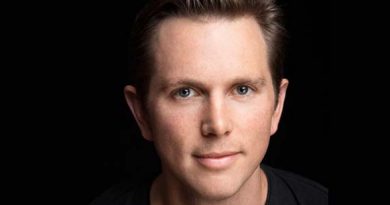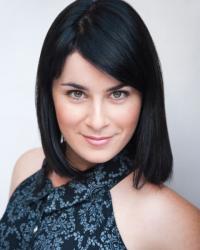The benefit of 20/20 hindsight

Now, it is well known that I like to write columns about the past. I’m a sucker for over-analysing by-gone events and discovering the wisdom of hindsight. Also I like to ignore the present and pretend the future doesn’t exist, because I’m in denial about where I’ve ended up and confused about what’s supposed to happen next. No wonder I can never finish a damn thing I write. My orientations are excellent, my complications have a large [insert here] sign where the major plot points should be and my endings change from week to week depending on my moods. If I’m feeling optimistic, the heroine lives. If I’ve decided that all men are impossible, she dies, everyone dies, and the play will self-destruct in five seconds.
What a mighty literary force I am shaping up to be. Perhaps I should start a new theatrical movement, where I only write the beginnings of shows and leave it up to the audience to invent the rest. It would be similar to a “choose your own adventure!” novel, except more like “write your own plot!” or “compensate for the writers’ deficiencies!” I think there’s something in it. Imagine the fervent dinner table discussions that would ensue post-show. In some ways I’d be doing society an enormous favour. People would be forced to connect with their creativity. And when people connect with their creativity they become liberated and alive and expressive, which would make them think more expansively in their chosen professions, which would boost the economy and enrich the community and make everyone better lovers. I’d be changing the world through my shortcomings. And if that’s not altruism, I don’t know what is.
[pull_left]As performers, it is easy to feel at the mercy of others when we’re waiting around to get an audition or be cast in something[/pull_left]
I went to see a show like this once, although not on purpose. I thought the show was a complete show before I paid my $25 – a fair assumption based on the last 2000 years of standard theatre practises. But at the commencement of the show, the director came out and informed everyone that they still didn’t have an ending. “If anyone has any ideas, please meet us for a drink in the bar afterwards” she said. I was appalled. It was a new Australian work and apparently the writer couldn’t decide on how the story should resolve. Right. Surely that was like a doctor being undecided about where to insert the kidney after surgery and putting a Suggestions Box outside his office. IT’S NOT AN OPTION! IT’S HIS JOB!
However it did have the desired effect – I went to dinner afterwards and engaged in a heated conversation with my friend about the piece. Although from memory, all I did was swear a lot and ask for more wine. I don’t think we exercised our creative potential at all. So perhaps my hypothesis doesn’t quite stand to reason. I should probably just learn how to finish a play.
Now that I’ve proposed the reformation of theatre, put forward a contradictory anecdote and abandoned the entire notion in two paragraphs, I think I can get on with the column. What I wanted to do was write about the future, well, at least the next three days. I opened my diary yesterday and realised that I had a sprawling few days ahead of uninterrupted creativity. This never happens! I was so excited. I had a session booked with a couple of friends to devise some sketch comedy, a play-reading, a voice class, a writing session for a new play I’m working on and a scene study class. As a point of reference, my week usually looks like “work, work, yoga, coffee, existential crisis, wine, cake, work, burn off cake, oh shit it’s Monday again.” So I felt quite proud that this wasn’t the case.
As performers, it is easy to feel at the mercy of others when we’re waiting around to get an audition or be cast in something. But there’s no reason why we can’t live a stimulating creative life of our own accord. It is often more empowering and satisfying to take the initiative and create our own work anyway. As the wonderful acting coach Larry Moss said when he was in Australia recently, “you have to be a force in your own creative process.”
Now if you’ll excuse me, I’d better go and finish writing those plays.


